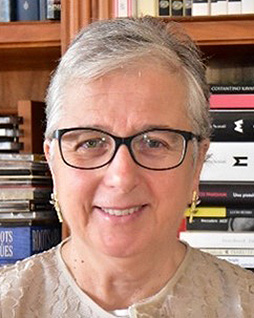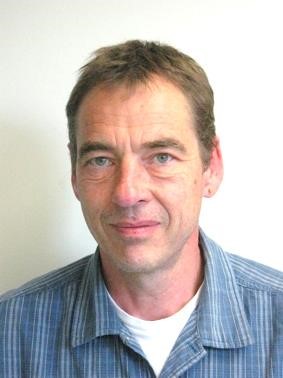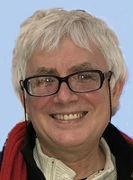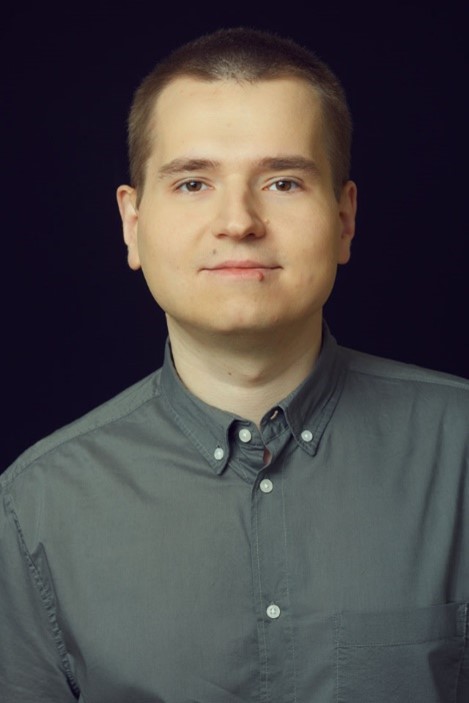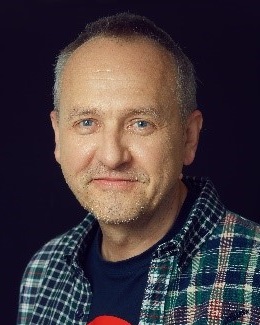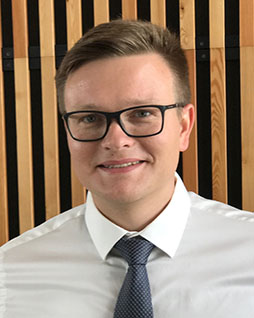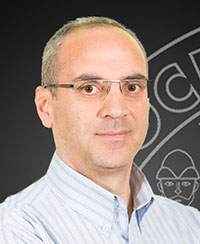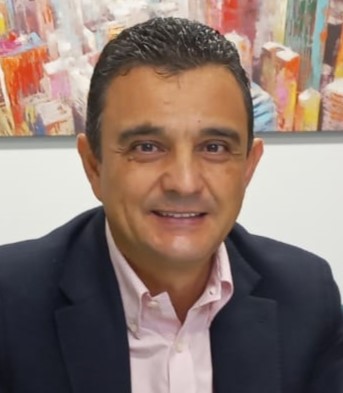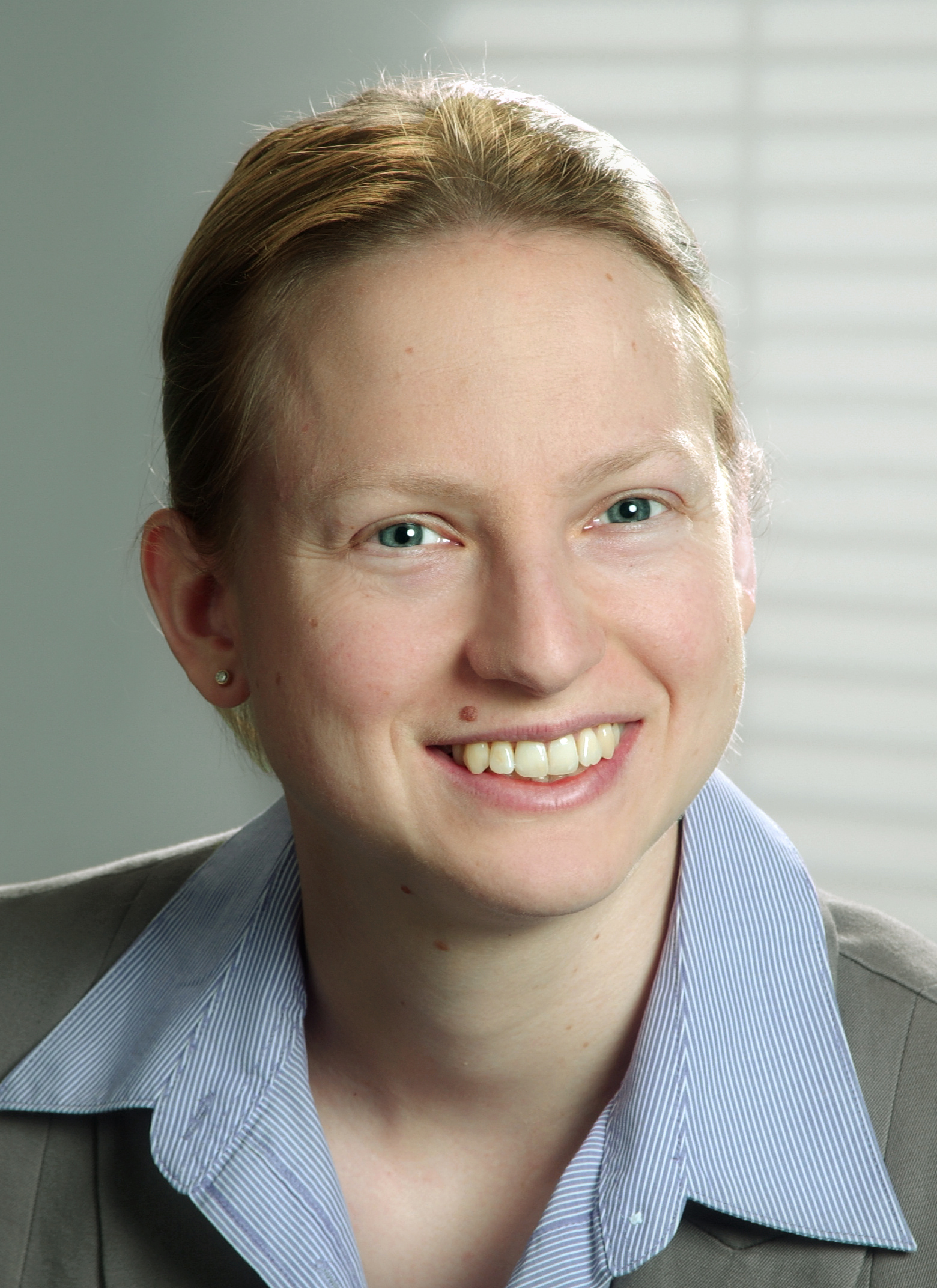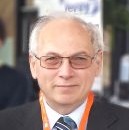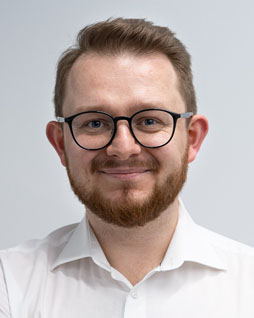Giovanna Ferrari is a Full Professor of Chemical and Food Engineering at the University of Salerno. She had been Visiting Researcher at Wageningen University (NL) in 1986 and Visiting Scientist at the Experimental Station of DuPont Co. (USA) in 1994. Currently, Giovanna is also President of the ProdAl Consortium, a technology transfer Centre in Agri-food sector based at the University of Salerno. Her research is focused on the utilization of nonthermal and conventional technologies in food treatments to increase products safety, quality, and nutritional value, to valorize agro-industrial residues and microalgal biomass, in food nanotechnology, in post-harvesting, with over 350 publications in these topics. She supervised numerous PhD thesis and Master thesis. Giovanna has been invited as keynote speaker and lecturer at international conferences and schools and has acted as Chairman of the Organizing Committee of International Workshops, Congresses, and Schools. Her research activities are devoted to spread the utilization of novel technologies in food processing, among which HPP, HILP and PEF technologies, to substitute or complement traditional unit operations. According to the technology transfer mission of ProdAl and thanks to the availability of pilot scale facilities in her laboratories she works with industrial partners in European and National projects. She also leaded other projects, covered by non-disclosure agreements signed with multinational companies and SMSs, based on the utilization nonthermal technologies. From 2017 Giovanna is Officer at Large of the International Society for Electroporation-Based Technologies and Treatments – ISEBTT, and from 2020 is Field Chief Editor of the Journal Frontiers in Food Science and Technology.
Wolfgang Frey received the PhD degree in high voltage technology and plasma physics from the University of Karlsruhe.
He was an assistant professor with the High Voltage Institute at Karlsruhe, focusing on new pulsed power concepts, high voltage test engineering and switching. In 1997, he started with pulsed electron beam surface coating at KIT/IHM, worked on electrodynamic fragmentation and turned to PEF effects on biological materials in 2001, focusing on bacterial inactivation and ns-timescale membrane-voltage measurement. Since 2006, he has been team leader in Bioelectrics at KIT/IHM. His current research interests include PEF-assisted cascade processing of microalgae for multiple components extraction, PEF-induced cell responses and bacterial decontamination of industrial water streams.
Henry Jäger is Professor of Food Technology at the University of Natural Resources and Life Sciences (BOKU) in Vienna. He moved back to academia from an industry position in Research and Development at Nestlé where he worked on process development in the field of preservation technologies. Before, he was researcher in the Department of Food Biotechnology and Food Process Engineering at Technische Universität Berlin where he also obtained his PhD and an Engineering Degree (Dipl.-Ing.) in Food Technology. His research field covers the application of alternative food processing technologies for gentle food preservation as well as the targeted modification of food structures.
Nikolai I. Lebovka is a professor of physics and head of Laboratory Department of Physical Chemistry, Biocolloid Chemistry Institute, Kiev. He obtained his PhD degree in molecular physics at Taras Shevchenko National University (1986) and Habil. Dr. Science in physics of colloids at the Institute of Biocolloid Chemistry (1995). His research interests encompass the electric field effects in bio and food materials, colloidal suspensions, biocolloids, theory and applications nanocomposites, computation physics and percolation phenomena. He has participated as a member of organizing committee in many International conferences (30) and he has involved as a leader or participant in several International projects. He is a member of editorial boards of several journals. He has published more than 310 Scopus papers, several chapters in books and he was in organizing committee member for several international conferences. He was awarded by State prize of Ukraine in Science and Engineering (2011). He is a member of Ukrainian Committee of awards L’Oréal-UNESCO for women in science, and a member of Scientific Council of National Research Foundation of Ukraine. Lebovka can be reached at the Laboratory of Physical Chemistry, Biocolloid Chemistry Institute, Kiev, 03142, Ukraine, .
James Lyng is the Head of the Food and Nutrition Section at University College Dublin (UCD). Since his appointment to the academic staff of UCD, he has single-handedly developed an entirely new area of research in emerging and green food processing technologies at UCD. This research focuses on emerging thermal (microwave, radio frequency wave and moderate electric field heating) and non-thermal technologies (ultrasound, high voltage pulsed electrical fields and light (Ultra Violet Light, Blue Light and High Intensity Pulsed Light)) in food processing including their (i) assessment for preservation; (ii) impact on product quality/nutritional value; (iii) potential for food waste valorization (e.g., bioactive extraction); (iv) role in the bioeconomy (e.g. anaerobic digestion pre- and post-treatments and improved process sustainability). In his time at UCD, he has attracted more than €5.7 million of funding, edited 2 books, published 16 book chapters and more than 170 peer review publications (h-factor of 41). He is a Co PI in the SFI BiOrbic Centre, and is a member of its Executive, Spokes Leadership Team and Scientific Committee. He has partnered in European projects, recently completed the coordination of an ERA-Net project in moderate electric fields in food processing. Professor Lyng lectures in Food Process Technology, Food Physics and Coordinates the Professional Work Experience programme for Food Science.
Samo Mahnič-Kalamiza has been a research assistant and, since Oct. 2021, research associate of the Laboratory for Biocybernetics at the University of Ljubljana, Faculty of Electrical Engineering. In 2012-2015, he was a doctoral student at the UTC (i.e. Unviersité de Technologie de Compiègne, Compiègne, France), and worked on mathematical modelling of heat and mass transfer in electroporated tissue under the mentorship of prof. Eugène Vorobiev and prof. Damijan Miklavčič. He defended his doctorate in co-mentorship between the two universities (UTC and University of Ljubljana) in December 2015. His research interests since remain tightly associated to electroporation applications in food technology, as well as biomedicine. His focus is both on electrochemical effects and bioimpedance, electrokinetic mechanisms of mass transport, and on analytical methods (such as signal, texture, and impedance analysis) of characterising the impact of electroporation on plant and animal tissues.
Damijan Miklavčič received a PhD in electrical engineering from the University of Ljubljana. He is currently a tenured professor and research leader in the Laboratory of Biocybernetics at the University of Ljubljana, Faculty of Electrical Engineering. His research interests include electroporation-based gene transfer and drug delivery, tissue ablation by irreversible electroporation, development of hardware and numerical modeling of biological processes. In the last decade his interests overlap with the use of electroporation in food science and biotechnology. He is the past-president of the International Society for Electroporation-Based Technologies and Treatments and is actively promoting the cross-sectional research and application of PEF technology.
Oleksii Parniakov is the Principal Scientist at Elea Technology GmbH, Germany. He received his PhD in Food Process Engineering at the Technological University of Compiegne, France. His research interests mainly focus on non-conventional methods for enhancement of different food related processes. He worked mostly on pulsed electric field assisted extraction of bioactive compounds and drying, freezing of solid food products. He has 42 published peer reviewed research or reviews articles in high impact factor international journals, 1 book, 3 book chapters, 20 presentations in conferences (most of them as proceedings and oral communications).
Gianpiero Pataro received his PhD in 2004 at the University of Salerno (Italy) where he is currently Associate Professor in Chemical Plant Design at the Department of Industrial Engineering. His research field covers the application of emerging thermal (ohmic heating) and Nonthermal technologies (pulsed electric fields, high intensity pulsed light, continuous wave UV light, high pressure carbon dioxide) in food and biotechnological processes, with three main objectives: improve safety, quality and functional properties of processed foods, induce targeted modification in food structures, and improve the mass transfer process of valuable compounds from biological matrices (food and food by-products, microalgal cell suspensions).
Javier Raso received his PhD in 1995 at the University of Zaragoza (Spain) where he is currently professor of Food Technology and former Director of the Pilot Plant of Food Science and Technology. He has been visiting researcher of the Microbiology Department at Unilever Research in Bedford (UK), of the Department of Food Biotechnology and Food Process Engineering at Technical University of Berlin (Germany) and of the Biological Systems Engineering Department at Washington State University (USA). His areas of research are in the field of food preservation and processing by thermal and non-thermal technologies such as ultrasound, high hydrostatic pressure, pulsed electric fields and combined processing. Research interest is focused on critical factors affecting the efficacy of technologies, kinetics and mathematical modelling, process optimization and mechanisms of action. He has been involved in a number of EU and national funded projects in these topics and he is the author of more than 150 peer-review papers. He is co-editor of the first and second edition of the book “Pulsed Electric Fields Technology for the Food Industry” and the “Handbook of electroporation “. He was the Vice-Chair of the COST Action TD1104 “European network for development of electroporation-based technologies and treatments (EP4Bio2Med) and coordinator of the project FieldFOOD of the Horizon2020 Framework Program of the European Union. He is currently the President-Elect of the International Society of Electroporation based Technologies and Treatments (ISEBTT).
Cornelia Rauh (Prof. Dr.-Ing. habil. Cornelia Rauh) is Head of the Institute of Food Biotechnology and Food Process Engineering at the Technische Universität Berlin (Germany) since March 2013. Before, she was group leader of the research groups “Thermofluiddynamics of biotechnological processes” and “Computational Fluid Dynamics” at the Institute of Fluid Mechanics at the Friedrich-Alexander-University of Erlangen-Nuremberg (Germany). There, she received her PhD in 2008 and her Habilitation in 2013. Until 2005, she studied Technology and Biotechnology of Foods at the Technical University of Munich (Germany). Her research focus lies in the interdisciplinary field of numerical and experimental investigation of biotic and abiotic systems capable of flowing. This includes food preservation and functionalisation by high pressure processing or pulsed electric fields processing, generation and stability of food foam systems, extrusion processes, fermentation processes, analysis and design of (bio)chemical reactors up to bionic applications at a broad range of time and length scales.
Robert Soliva-Fortuny holds a PhD in Food Engineering from the University of Lleida, where he is currently working as Full Professor in the Department of Food Technology. He has developed his research activity as a member of the group on Novel Food Processing Technologies, for which he has gained international recognition. His main research interests are focussed within the food processing and preservation field. Namely, the development of high-quality, safe and healthy products by combining novel and conventional techniques has been a constant moto in his research career. He has been leading research projects related to the study of non-thermal technologies (pulsed electric fields, pulsed light) to plant-based foods. His studies are mostly focussed on the effects of these treatments on quality parameters, health-related compounds and food enzymes. He has authored more than 140 peer-reviewed research papers, 40 book chapters and several dissemination and outreach publications for both the professional and the general public and has edited 2 books.
Stefan Töpfl is food technologist and received his PhD in food process engineering at Berlin University of Technology in 2006. As process specialist at the German Institute of Food Technologies, DIL, he is active in process design and realization of processing equipment with a focus on pulsed electric fields, static and dynamic pressure applications, supercritical fluids as well as plant protein extrusion. Since 2009 he is professor at the University of Applied Sciences, Osnabrück, Germany. Since 2017 he is managing director of Elea GmbH, a spin off entity for marketing innovative processing technologies for the food industry. His research interest is focused on efficient and sustainably food production techniques, plant based protein processing and process automation.
Eugène Vorobiev is Professor Emeritus at the Compiègne University of Technology (UTC), France. He was professor and head of the Laboratory for Agro-Industrial TechnologiesofUTC in 1997-2021. He received his PhD degree in Food Engineering (1980, NUFT, Ukraine) and his Dr Habil. in Chemical Engineering (1997, UTC, France). His main research interests are focused on mass transfer phenomena, theory and practice of solid/liquid separation, and innovative food technologies (especially electrotechnologies). He has published more than 400 scientific peer-reviewed papers, he is the author of 19 patents, he co-edited several books (Electrotechnologies for Extraction from Food Plants and Biomaterials, Springer, 2008; Enhancing Extraction Processes in the Food Industry, CRC Press, 2011; Green Food Processing Techniques, Elsevier, 2019), edited a section (10 chapters) in Handbook of Electroporation, Springer, 2016, and co-authored the book Processing of Foods and Biomass Feedstocks by Pulsed Electric Energy, Springer, 2020.He is a member of editorial board in several international journals: “Separation and Purification Technology” (Elsevier), “Innovative Food Science and Emerging Technologies”(Elsevier), “Food Engineering Reviews” (Springer). He was awarded by Gold Medal of the Filtration Society (2001) and he is a Laureate of the Price for the innovative technique for the environment (Ademe, 2008, 2014).
Artur Wiktor is a specialist in the field of food engineering, including primarily the use of pulsed electric field to support unit processes. Author of over 80 publications. He works at the Department of Food Engineering and Production Organization at the Warsaw University of Life Sciences, and he gained his international experience during scientific internships: in Germany and working as a Visiting Assistant Professor at the University of British Columbia in Canada. Member of the Early Carrer Scientists Section of International Union of Food Science and Technology (IUFoST). Multiple research project manager – currently leads the work of the Polish research team implementing a research project under the Horizon 2020 program.

